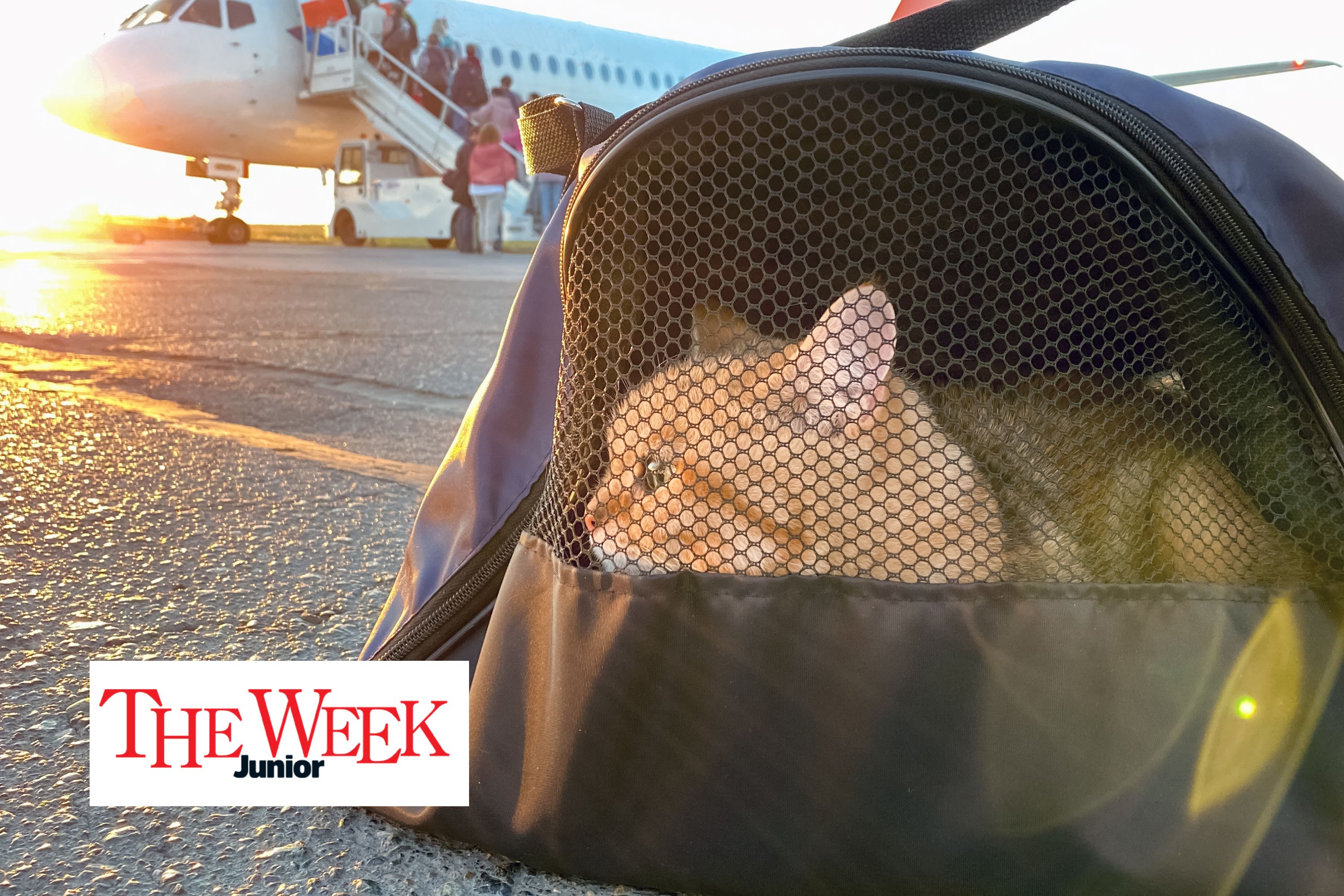Should pets be allowed on flights? A great debate for kids - with The Week Junior
An airline is saying pet dogs and cats can fly with their owners

For some people, pets are a part of the family. When owners need to go somewhere for work, a holiday, or if they are moving, they have to carefully consider how to take their pets with them. This can often affect where, when and how they travel. In the past, pet owners travelling by air have had to put their pets in the cargo hold, a separate area in an plane that is usually underneath the cabin where passengers sit.
Recently, more airlines have started allowing pet owners to bring small cats and dogs into the passenger cabin, as long as they are inside a special carrier. However lots of people are allergic (can have a bad physical reaction) to animal hair and others don’t feel comfortable on flights or around pets. So, what do you think? Should pets be allowed on flights?
What you need to know
- In March, an airline in Australia announced plans to allow pets to fly in the cabin (the part of the plane where passengers sit).
- The airline says only small cats or dogs would be allowed to sit in the cabin, by their owners' feet. Passengers and their pets would be restricted to certain seats on each plane and the animals would need to be in a special type of carrier.
- In the UK certain animals are already allowed to travel in the cabin with their owners on many airlines. However these are specially trained assistance dogs, such as Guide Dogs for people who are blind or partially sighted.
Yes – pets should be allowed on flights
Animal charities say flights can be distressing for animals in the cargo hold, where they are away from their families. Putting pets in the cargo hold can be very stressful for their owners. Allowing pets in the cabins makes sense because owners can look after their animal, making it less upsetting for both of them.
It also means pet owners won’t have to leave their animals at home with sitters, or in a kennel or cattery. This saves pet owners having to find someone to look after their pet. Besides, having pets on flights and in airports can also cheer fellow passengers up. They can help make airports and the flying experience more fun for some airport workers, airline staff and passengers.
Three reasons why pets should be allowed on flights:
- Pets will be less stressed flying with their owners in the cabin. The cargo hold is distressing and scary for pets and animals often need to be sedated (put to sleep using medicine).
- It means that pets won't be left at home or looked after in a cattery or kennels, saving pet owners money.
- Having pets on flights and in airports makes travelling more pleasant for some passengers.
No – pets don't belong on flights
Flights are not really set up for pets. If a flight is full, would an animal really feel happy and calm inside a carrier under a seat on a busy aircraft? Maybe not. Also, if the animal needs to go to the toilet, it could stink the whole plane out. There's also the chance that some passengers on flights could have allergies to animals or be scared of them.
Airports and aeroplanes aren't designed for animals either – they can be busy, loud and intimidating, which could be distressing for pets. Also, some people who care about the environment say there should be fewer flights because aeroplanes burn fossil fuels, which contributes to climate change. They argue that both people and animals should be flying less.
GoodtoKnow Newsletter
Parenting advice, hot topics, best buys and family finance tips delivered straight to your inbox.
Three reasons why pets should not be allowed on flights:
- Some people don't like animals and are scared of dogs, and others have animal allergies. Aeroplane cabins are designed for people, not animals.
- Airports and aeroplanes can be stressful places for humans, let alone animals. It's unfair to put animals in this situation.
- Flying burns fossil fuels and contributes to climate change. People and their pets should be flying less, not more.
Recent updates
This feature was originally published in May 2024 in The Week Junior, which is also owned by Future Publishing.
Subscribe to The Week Junior
Get your first 6 issues free - saving £21 - when you subscribe to The Week Junior magazine. Continue on subscription and pay just £33.99 every 3 months, saving 25% off the cover price, unless cancelled in the trial period.